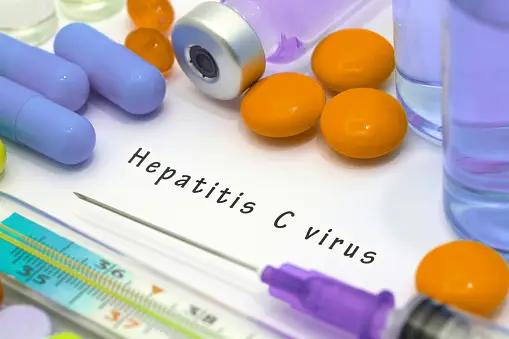
The findings reveal a novel role for human guanylate binding protein 1 (GBP1) as a factor that supports the virus. It plays a critical role in the assembly and release of the virus by acting via anchoring elements involved in the shaping of HCV, attaching to the surface of lipid droplets.
The study shows that HCV triggers GBP1 expression. Additionally, GBP1 expression was prompted by stimulating the cells with interferons (IFN)γ. GBP1 levels were managed through either the overexpression of GBP1-Wt or knockdown via siRNA. Suppressing GBP1 hindered the discharge of viral entities and led to the buildup of the HCV core within cells, whereas increasing GBP1 levels enhanced viral replication and dispersal. Through CLSM and STED microscopy, GBP1 is vesicularly distributed in the area surrounding the nucleus. In this location, GBP1 and the HCV core are co-located near lipid droplets, serving as a scaffold that supports the formation and release of HCV.
“For HCV, a decreased expression of GBP1 was described in cells harboring a subgenomic HCV replicon construct,” according to the investigators. “Further analyses of the same group identified an interaction of the viral polymerase NS5B finger domain with the N-terminal GTPase domain of GBP1, which blocks its antiviral activity.”
3 Key Takeaways
- Despite being traditionally recognized for its antiviral properties, GBP1 unexpectedly supports the assembly and release of HCV, indicating a pro-viral effect.
- GBP1’s involvement in the HCV lifecycle is particularly notable in the process of viral assembly and release.
- The discovery of GBP1’s pro-viral role in HCV infection sheds light on the nuanced and sometimes paradoxical interactions between viruses and host cellular factors.
Viral infections activate the production of IFNs and the genes they stimulate, known as interferon-stimulated genes (ISGs). Among these ISGs, GBP1 is notable for its antiviral properties against a variety of viruses. A prior investigation highlighted that GBP1 hampers the replication of the HCV. The precise effect of GBP1 on the lifecycle of HCV remains unknown.
“In contrast to these data, we observe a proviral effect of GBP1 on HCV. Unlike recently reported, we found an increased GBP1 expression (~7-fold) and protein amount in HCV replicating cells,” according to investigators. “Silencing of GBP1 resulted in a decrease of intra- and extracellular viral titers and in an intracellular accumulation of the core structures. These observations corroborate the protein’s role during the release of viral particles.”
The study faces key limitations such as the complexity of replicating GBP1, and HCV core interaction suggests a need for understanding the conditions facilitating their association. The reliance on certain cell culture systems may limit the findings’ applicability across different cellular environments, indicating the observations on GBP1’s effects on actin organization may not be universally valid. The research highlights the complex relationship between GBP1 and viral infections, suggesting a deeper exploration is needed to clarify GBP1’s role across different pathogens. These points underline the necessity for further studies to expand our knowledge on GBP1’s involvement in viral mechanisms and its potential implications for antiviral research.
“In conclusion, our study identified a new pro-viral role for GBP1 in the HCV life cycle. This stands in contrast to its currently described antiviral capacity. We demonstrate that GBP1 is an essential factor involved in viral assembly and release,” investigators noted.
Reference
Bender D, Koulouri A, Wen X, et. al. Guanylate-Binding Protein 1 Acts as a Pro-Viral Factor for the Life Cycle of Hepatitis C Virus. Published February 5, 2024. Accessed April 8, 2024. https://doi.org/10.1371/journal.ppat.10119